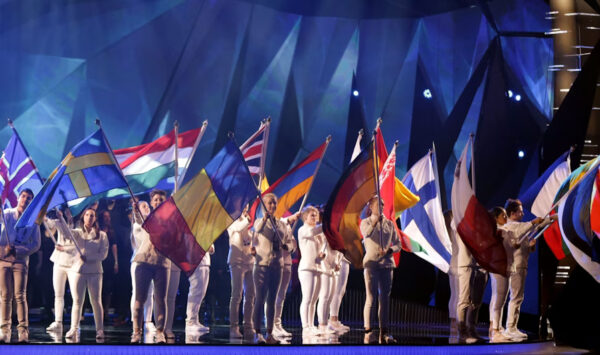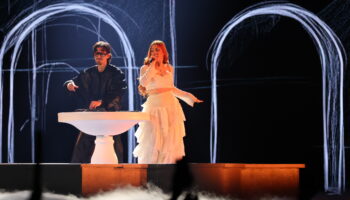Several changes to the Eurovision Song Contest flag policy have been announced ahead of the 2025 edition in Basel, Switzerland. The European Broadcasting Union (EBU) has confirmed that almost all flags will now be allowed in the audience. Meanwhile, stricter rules for participants have been introduced.
At the Eurovision Song Contest 2024 in Sweden, several fans had their pride flags confiscated at the entrance. EU politicians also criticised the decision to ban EU flags in the audience.
Following the backlash, the EBU (European Broadcasting Union) expressed regret and promised to update its flag policy. Swiss winner Nemo – who uses they/them pronouns – revealed that they had to smuggle a non-binary flag onto the stage during the flag parade last year.
The policy change comes after growing demands for more freedom of expression within the competition. The organizers have stated that a balance between expression and clarity is being sought for 2025.
Audience now allowed to bring most flags
According to the new rules, fans attending the Eurovision Song Contest 2025 may bring flags of their choice, provided they do not violate Swiss law.
Flags promoting racism, discrimination, or supporting banned terrorist organizations will not be allowed. Pride flags, EU flags, and even flags from non-participating countries – including the Palestinian flag – are now permitted in the audience.
The relaxed policy reflects Switzerland’s commitment to freedom of expression, while still maintaining a politically neutral stage environment.
Participants face stricter regulations
While fans enjoy new freedoms, the delegations will operate under stricter guidelines. Only the official flag of the country they represent may be used on stage, during scoring, and at all official Eurovision events such as the Opening Ceremony, the Eurovision Village Stage, and the Green Room.
During the opening flag parade, participants must carry only one flag provided by the Swiss broadcaster SRG SSR. This move aims to avoid the repeat of incidents like last year, when Nemo smuggled a non-binary flag onto the stage.
The display of solidarity with political causes, such as waving Ukrainian flags – seen during the 2022 contest – will no longer be permitted for participants.
Breaking the rules may lead to severe consequences
The EBU has warned that violations of the flag policy could lead to serious consequences.
Audience members may be refused entry, removed from the event, or have their flags confiscated. Participants who break the rules could face further, unspecified sanctions. The EBU has not detailed these additional consequences but emphasizes that delegations are expected to act in good faith.
The EBU stated that the flag policy is designed to create clarity and maintain balance while allowing enthusiasm and identity to be expressed.
Key points from the new flag policy
The new Eurovision Song Contest 2025 flag policy includes the following points:
- All flags and banners are allowed unless prohibited by Swiss law.
- Flags promoting racism, discrimination, hatred, violence, or banned organizations are prohibited.
- Audience members may bring pride flags and non-participating country flags.
- Delegations must only use their country’s official flag during all official events.
- Only one official flag provided by SRG SSR is permitted during the flag parade.
- Violations can lead to removal, confiscation of flags, and further sanctions for participants.
The Eurovision Song Contest 2025 will take place in Basel, Switzerland, with semi-finals on 13 May and 15 May, and the Grand Final on 17 May. A total of 37 countries are participating.
Source: dr.dk | Eurovision Basel | escxtra
Photo source: express.de




